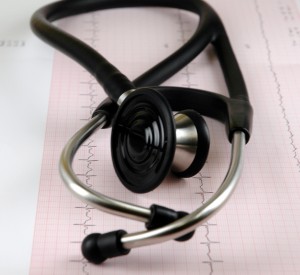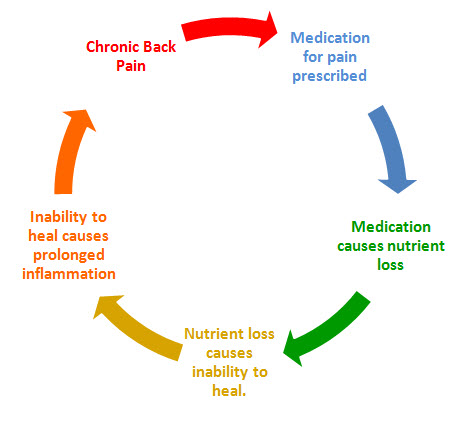 What You Should Know About Cholesterol Before Taking Medication
What You Should Know About Cholesterol Before Taking Medication
By Dr. Osborne
High cholesterol is a household word in America. We have been told that it causes heart disease and stroke. We have been told to eat less animal fat. We have been told to eat more carbohydrates and fiber. We have been told that children as young as 2 years old should have their cholesterol checked. We have been marketed to by cereal companies. They tell us to eat whole grain sugar loaded cereals (i.e. Honey Nut Cheerios and Lucky Charms) to lower our cholesterol and prevent heart disease. Drug companies like Merck and Pfizer have told us that we need to take artificial chemicals to lower cholesterol. Our doctors have told us that we should use these medications for the rest of our lives…
Has anyone stopped to ask why? Does it sound reasonable to put an 8 year old on cholesterol medication? It is reasonable to think that a processed cereal with excessive sugar be used as a tool to improve health? Is it reasonable to believe that we need to avoid eggs and animal protein and take a drug to keep the body functioning normally? What did we do before the medicine? Statistically speaking, heart disease and stroke are on the rise in spite of the use of preventative cardiovascular medicines. So the big question is: If taking these medications prevents heart disease, why are people dying from heart disease in record numbers?
Let’s take a look at the scientific facts surrounding this issue:
High cholesterol as a risk factor for cardiovascular disease is a disproven theory. Many medical experts have refuted this hypothesis for years.(1-2) Studies using cholesterol medications to lower the risk for heart disease are funded and sponsored by pharmaceutical companies. Both the editors of the New England Journal of Medicine & Journal of the American Medical Association have admitted that published papers in the two journals are often times fraught with conflicts of interest and that many studies that yield non beneficial drug effects go unreported. Many studies overstate the benefit of medication use by manipulating statistics and reporting relative risk reduction instead of actual risk reduction. For example, a recent study reported a 53% “relative” reduction in heart disease using Crestor, but the actual risk reduction was only 0.9%.
Multiple studies have shown that people with higher cholesterol live longer.(5) High cholesterol has not been shown to be a risk factor for heart disease in women, diabetics, coronary heart disease patients, or the elderly.(3) As a matter of fact, several studies have shown that higher cholesterol levels in the elderly population is associated with greater longevity and a reduced risk of dying from cancer and infection.(4-5)
Add the following facts to the above information: Low cholesterol has been linked to an increased risk of stroke, depression, aggressive and violent behavior, and suppression of immunity.
Risk Vs. Benefit
When considering the use of any medication it is important to know what NNT (numbers needed to treat) means. NNT is a value that rates the efficacy of a medication. The NNT for statin drugs is about 100. This means for one person to receive the benefit of the medication, 100 people have to be taking it. That’s a whopping 1% efficacy value. When you take into account the side effects of cholesterol lowering medications the question becomes: Is it worth it?
How can something responsible for so many critical functions be so bad?
1. Cholesterol is a precursor to all sex steroids (progesterone, testosteron, estrogen)
2. Cholesterol allows your body to make vitamin D (deficiency of vitamin D causes heart disease)
3. Cholesterol allows your body to make Coenzyme Q10 (Deficiency of CoQ10 causes congestive heart failure and high blood pressure.)
4. Cholesterol helps fight viral and bacterial infection
5. Cholesterol is necessary for brain cells to form communication synapses.
References: (Not all are listed, but they are available by request.)
1. Rosch PJ. Cholesterol does not cause coronary heart disease in contrast to stress. Scand Cardiovasc J. 2008 Aug;42(4):244-9.
2. Ravnskov U, Rosch PJ, Houston MC. Should we lower cholesterol as much as possible? BMJ2006;332:1330-1332.
3. Ravnskov U. Should medical science ignore the past? BMJ 2008;337:a1681.
4. Krumholz HM, et al. JAMA 1994;272(17):1335-1340.
5. Weverling AW, et al. Lancet 1997;18(9085):1119-23.










